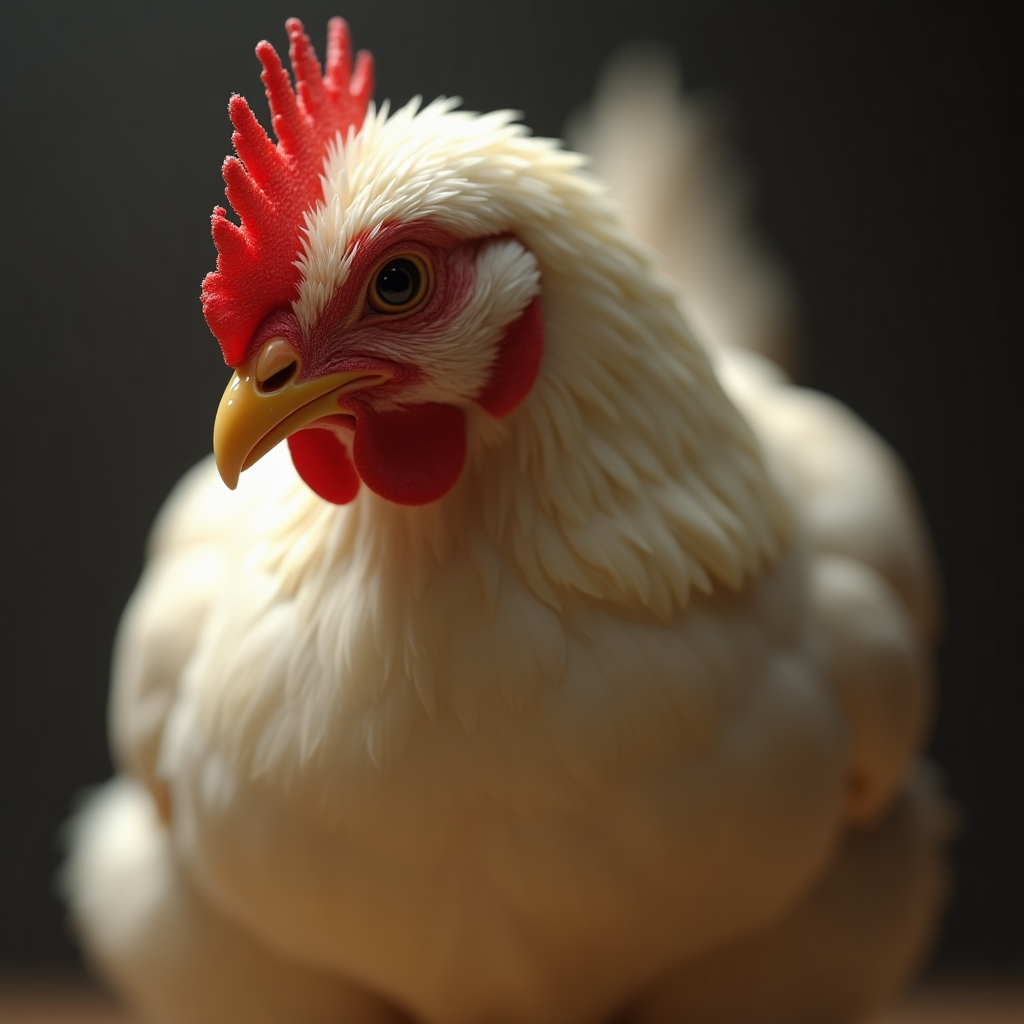Online Chicken Respiratory Treatment & Medicine from Home
Online chicken respiratory treatment consultation - only $65. Get expert virtual vet care for your flock's breathing problems without leaving home.
TALK TO A VET

Respiratory infections in chickens can be caused by various pathogens and environmental factors. Understanding these causes is crucial for proper treatment and prevention. Common causes include: • Mycoplasma gallisepticum (MG): A bacterial infection that can cause chronic respiratory issues • Infectious Bronchitis Virus (IBV): A highly contagious viral infection • Avian Influenza: A serious viral infection that requires immediate veterinary attention • Environmental Factors: Poor ventilation, overcrowding, or dusty conditions • Stress: Can weaken the immune system and make birds more susceptible to infections
Early detection of respiratory symptoms in chickens is crucial for effective treatment. Watch for these common signs: • Sneezing and Coughing: Frequent sneezing or coughing sounds from your chickens • Nasal Discharge: Clear or cloudy discharge from the nostrils • Swollen Eyes: Puffy or watery eyes, sometimes with discharge • Breathing Difficulties: Open-mouth breathing or tail bobbing • Reduced Activity: Less movement and decreased appetite • Decreased Egg Production: In laying hens, respiratory infections often affect egg laying If you notice any of these symptoms, it's important to consult with a veterinarian quickly to prevent spread within your flock.
Managing respiratory infections in chickens requires prompt, professional care. Telavets offers convenient access to experienced poultry veterinarians who can help diagnose and treat your chickens' respiratory issues. Our services include: 1. Expert Virtual Consultations Our licensed veterinarians can assess your chickens' symptoms through video consultation, helping identify the cause and severity of the respiratory infection. 2. Customized Treatment Plans We develop specific treatment strategies that may include: • Appropriate antibiotics for bacterial infections • Supportive care recommendations • Environmental modification advice • Prevention strategies for the rest of your flock 3. Quick Medication Delivery When medication is needed, we offer next-day delivery to ensure your chickens receive treatment promptly. 4. Ongoing Support Our vets provide follow-up care and guidance to monitor your chickens' recovery and prevent future outbreaks.
Preventing respiratory infections in chickens involves several key practices: 1. Maintain Clean Environment • Ensure proper ventilation in coops • Regular cleaning and disinfection • Avoid overcrowding • Control dust levels 2. Quarantine Procedures • Isolate new birds before introducing them to the flock • Separate sick birds immediately • Use proper biosecurity measures 3. Nutrition and Support • Provide quality feed with adequate vitamins • Ensure clean, fresh water • Consider immune-boosting supplements 4. Regular Health Monitoring • Daily observation of your flock • Quick response to any symptoms • Regular wellness checks
Some respiratory symptoms require urgent veterinary attention. Contact Telavets immediately if you notice: • Multiple birds showing symptoms • Severe breathing difficulty • Complete loss of appetite • Rapid spread through the flock • Unusual behavior or severe lethargy Don't wait until symptoms become severe. Early intervention is key to successful treatment and protecting your entire flock. Schedule a consultation with Telavets today to discuss your chickens' respiratory health.
As a practicing poultry veterinarian with over 15 years of experience treating backyard flocks, I've seen firsthand how proper medication selection can make the difference between losing birds and achieving full recovery. Treatment choice depends on accurate diagnosis and understanding the specific pathogen involved. Evidence-Based Treatment Protocols: For Mycoplasma gallisepticum (CRD): • Tylosin (Tylan) - Most effective for chronic respiratory disease • Dosage: 500mg per gallon of drinking water for 5-7 days • Often combined with supportive care including electrolytes For Secondary Bacterial Infections: • Amoxicillin - Broad-spectrum antibiotic for mixed infections • Enrofloxacin (Baytril) - Reserved for severe cases due to resistance concerns • Treatment duration typically 7-10 days with careful monitoring For Viral Infections (Infectious Bronchitis): • No specific antiviral treatment available • Focus on supportive care: clean water, proper nutrition, stress reduction • Secondary bacterial infection prevention with probiotics Critical Treatment Considerations: Never use medications without proper veterinary guidance. Incorrect antibiotic use leads to resistance and treatment failure. Our telemedicine consultations ensure appropriate medication selection based on your flock's specific symptoms and history. All medications require proper withdrawal periods before eggs or meat can be consumed safely.
During my veterinary career specializing in poultry health, poor environmental management is the leading predisposing factor I encounter in respiratory disease outbreaks. Understanding these environmental triggers is crucial for both treatment and prevention. Critical Environmental Factors: Ventilation and Air Quality: • Ammonia levels above 25ppm severely damage respiratory tract lining • Poor ventilation allows pathogen buildup and increases infection pressure • Dust particles carry bacteria and viruses directly into airways • Optimal humidity should remain between 50-70% to prevent pathogen survival Housing Density and Stress: • Overcrowding increases stress hormones, suppressing immune function • Recommended space: 4 square feet per bird in coop, 10 square feet in run • Inadequate perch space forces ground sleeping, increasing pathogen exposure • Social stress from pecking order disruption weakens disease resistance Temperature Management: • Sudden temperature changes shock the immune system • Cold stress redirects energy from immune function to heat production • Draft exposure creates respiratory irritation and pathogen entry points • Optimal temperature range: 55-75°F for adult birds Biosecurity Failures: • Wild bird contact introduces new pathogens to domestic flocks • Contaminated equipment spreads disease between coops • Human traffic without proper clothing changes carries pathogens • Water contamination from runoff or wild animal access In my practice, I've found that addressing environmental factors simultaneously with medication treatment reduces recovery time by 40-60% compared to medication alone. Prevention through proper environmental management is always more cost-effective than treating established disease.